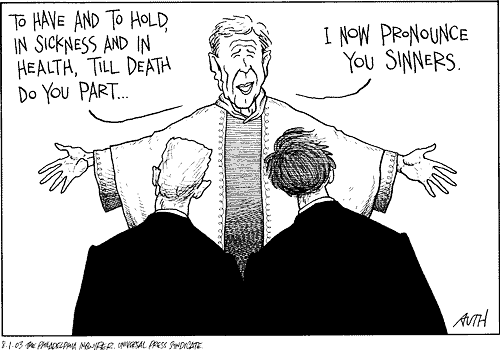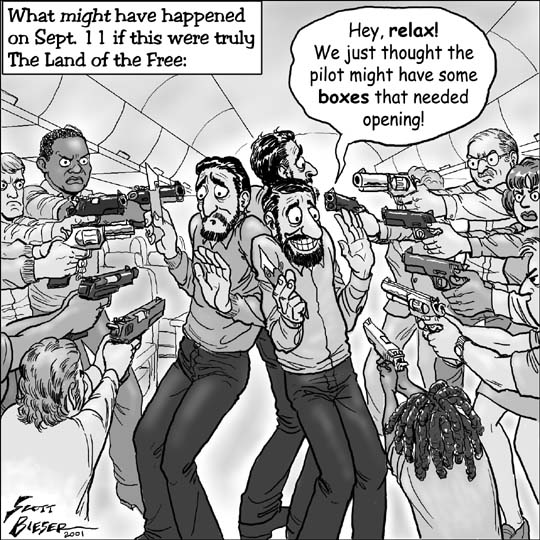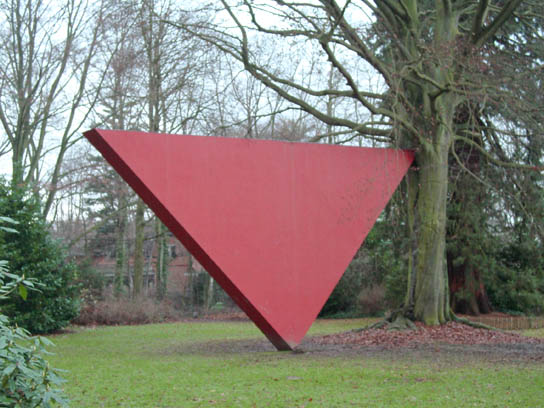
Thursday, November 29, 2007
A Quick Look Back, A Big Look Forward

Less Ranting, More Substance
 Most of my blogs have been rants against the mixing of religion and politics. Now I will calm down and try to better convey the reason why the two things should not be mixed. As I learned from my philosophy of religion class, I believe that religion is a private matter and should stay that. As I read the story of Abraham, I learn that religion can be irrational, but that is not the point I care about. What I learned from the story is that a private relationship with god where rationality is ignored and absolute faith given utmost dedication like Abraham's can be the right thing. Being guided by the bible and God for policy making is fine, but when someone takes this guidance into the public square and try to impose it on others, I get mad. The status of the Bible and a relationship with god cannot be debated in politics and the state cannot take sides in how the Bible and god should be interpreted. Such issues, I believe are subjects of private religious faith, not public reasoning. This is the real reason why I believe mixing religion and politics must be avoided.
Most of my blogs have been rants against the mixing of religion and politics. Now I will calm down and try to better convey the reason why the two things should not be mixed. As I learned from my philosophy of religion class, I believe that religion is a private matter and should stay that. As I read the story of Abraham, I learn that religion can be irrational, but that is not the point I care about. What I learned from the story is that a private relationship with god where rationality is ignored and absolute faith given utmost dedication like Abraham's can be the right thing. Being guided by the bible and God for policy making is fine, but when someone takes this guidance into the public square and try to impose it on others, I get mad. The status of the Bible and a relationship with god cannot be debated in politics and the state cannot take sides in how the Bible and god should be interpreted. Such issues, I believe are subjects of private religious faith, not public reasoning. This is the real reason why I believe mixing religion and politics must be avoided.
Wednesday, November 28, 2007
Many More Should Just Come Out of the Closet
.jpg)
Fighting Back Against Popular Culture

The Asian Occasion

Tuesday, November 27, 2007
Reverends in Popular Culture

Tuesday, November 20, 2007
True Religion Brand Politics

Monday, November 19, 2007
Politically Religious and Religiously Political

Thursday, November 15, 2007
State and Religion: The Case of Islam

Separation of Church and State Abroad

Wednesday, November 14, 2007
The Consequences of War and Religion
Tuesday, November 13, 2007
A New Era in the World and Religion

Monday, November 12, 2007
Religion and International Politics

Friday, November 9, 2007
My Predictions For Women, Religion, and Politics

The Not So Great Rise of Religion Into Women Politics
Wednesday, November 7, 2007
Race Over Gender

Mixing In a New Factor.

The Uncommon Triangle

The Media, the Best and Worse of Both Worlds.

Tuesday, November 6, 2007
The Best of Two Goods?

Monday, November 5, 2007
The Lesser of Two Evils?

Why Do People Fall For It?

Monday, October 29, 2007
The Media and Political Data
What Can We do Without You?

Thursday, October 25, 2007
Exceptions for Censorship

Wednesday, October 24, 2007
Relationship Part II

Tuesday, October 23, 2007
Relationships I

Monday, October 22, 2007
Life in America

Schools and Religion, Why Should Politics Care?

Thursday, October 18, 2007
Religion, Evolution, Schools, and Politics, ITS NOTHING NEW
 Much protest has arisen out of teaching evolution versus teaching creationist science in the recent years, but this fight over religion schools and politics is nothing new. The scopes trials following the civil war was over movements to ban teaching bible-threatening science in the south. Sure, Scopes did violate a Tennessee law at that time prohibiting teaching creationism, but i believe justice truly prevailed when the decision was overturned on a technicality. Despite this guilty plea, the evolutionist would win a major victory and slowly cause other states to repeal "monkey laws". What before was the religious side attacking science, and now that they do not have their way they have to reverted to a kind of hypocrisy calling their bible beliefs "creationist science". When they can not get evolution out of the schools they would try to put creationism science along side evolution to be taught together. I see this as there weakest attempt to promote the teaching of their views in school. This is nothing more than sore losers who wont give up and accept that it is the law for church and state to be separated.
Much protest has arisen out of teaching evolution versus teaching creationist science in the recent years, but this fight over religion schools and politics is nothing new. The scopes trials following the civil war was over movements to ban teaching bible-threatening science in the south. Sure, Scopes did violate a Tennessee law at that time prohibiting teaching creationism, but i believe justice truly prevailed when the decision was overturned on a technicality. Despite this guilty plea, the evolutionist would win a major victory and slowly cause other states to repeal "monkey laws". What before was the religious side attacking science, and now that they do not have their way they have to reverted to a kind of hypocrisy calling their bible beliefs "creationist science". When they can not get evolution out of the schools they would try to put creationism science along side evolution to be taught together. I see this as there weakest attempt to promote the teaching of their views in school. This is nothing more than sore losers who wont give up and accept that it is the law for church and state to be separated.
Wednesday, October 17, 2007
A Larger Look at Education, Religion, and School Boards

Having looked closely at the
Tuesday, October 16, 2007
Students, Teachers, and Rights

Monday, October 15, 2007
A Look at Home

Friday, October 12, 2007
The Other Side in America

Thursday, October 11, 2007
Non-Mainstream Extreme Right?

Wednesday, October 10, 2007
The Extreme Right and the Future
 Surely, extremist like these guys will never turn America into such a white society, but the can and have been able to paint parts of America so that other races are bleached out. Gary Miller, a california representative, is one of these far right politicians who has used the immigration crisis to support his right-wing extremism which got him 62% of the votes in California's 42nd district. Although the district he runs in, does have people of other races and religions, there have been little to none challengers to his seat in congress. I believe this phenomenon has been caused by Miller's strong influence on what people consider important. With time i believe he can make his constituents consider race and religion as important issues as well. If right wing extremism, supported by the immigration crisis, takes a hold in more districts, I see that those districts and its constituents may possibly and slowly support issues among the right wing agenda like religous and cultural issues as well. There are parts of America which are already white, not because it was painted white, but because its inhabitants were white. What I do not want to see is a part of America where there are people of other colors be painted white.
Surely, extremist like these guys will never turn America into such a white society, but the can and have been able to paint parts of America so that other races are bleached out. Gary Miller, a california representative, is one of these far right politicians who has used the immigration crisis to support his right-wing extremism which got him 62% of the votes in California's 42nd district. Although the district he runs in, does have people of other races and religions, there have been little to none challengers to his seat in congress. I believe this phenomenon has been caused by Miller's strong influence on what people consider important. With time i believe he can make his constituents consider race and religion as important issues as well. If right wing extremism, supported by the immigration crisis, takes a hold in more districts, I see that those districts and its constituents may possibly and slowly support issues among the right wing agenda like religous and cultural issues as well. There are parts of America which are already white, not because it was painted white, but because its inhabitants were white. What I do not want to see is a part of America where there are people of other colors be painted white.
Tuesday, October 9, 2007
The Youth in the Extreme Right

Monday, October 8, 2007
The Extreme Right, but an Extreme Left?

http://youtube.com/watch?v=si0WTCMrksw
Friday, October 5, 2007
Dividing America

that the Constitution refers to is theirs. Even the atheists are involve in this issue and want god to be completely removed. Being religiously apathetic(nearly atheist) i tend to side with the atheist and would rather have god removed from the constitution. If i had my way with the constitution and other American documents and pledges, I would much rather keep "god" but would remove "indivisible", because it would best describe the political and especially religious climate in America.
Thursday, October 4, 2007
The other faith
http://youtube.com/watch?v=OjsC8xzDdZw&mode=related&search= =
http://youtube.com/watch?v=vX4fRduSU7k
http://youtube.com/watch?v=f3EarhS5ysA&mode=related&search
Wednesday, October 3, 2007
A Whole New Crusade?

Tuesday, October 2, 2007
How the media portrays muslim/christian conflicts in america
http://youtube.com/watch?v=u_FWNVMpgzM
http://youtube.com/watch?v=P2Ih-LGWeIc&mode=related&search==
http://youtube.com/watch?v=P3TFYevEsGs&mode=related&search=
Monday, October 1, 2007
Comparing different religions with politics and the media
The American media has two ways of portraying Muslims and Islam. The Iraq War, Muslim against Muslim, and Muslim against Jews, are extensively covered in international news, where Muslims are involved in conflicts with themselves and others. The other way that the media portrays Muslims is that of Americans vs. Muslims and Christians vs. Muslims. Most domestic news stories often portrays Muslims as struggling to fit in with Americas and often undiverse. Incidents involving Christians and Muslims portrays Christians as ignorant and fearful of the Muslim faith and Muslims as possibly threatening to the status quo.
The media often leaves out or ignores many stories in international news involving Muslims, often just focusing on violence and the war much in the same way that they ignore the African Muslim population in America and stereotyping them as Nation of Islam.
http://youtube.com/watch?v=qYIquy6TrWo&mode=related&search=